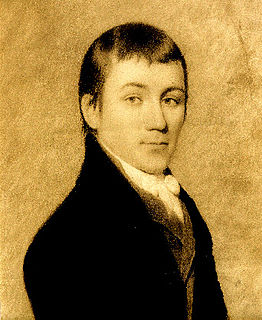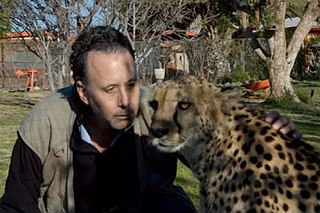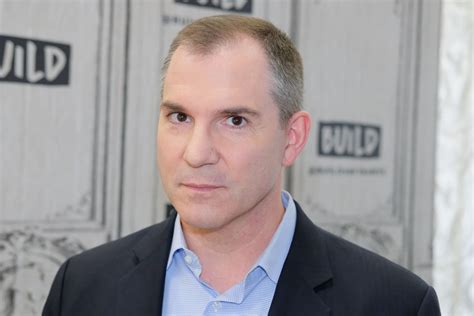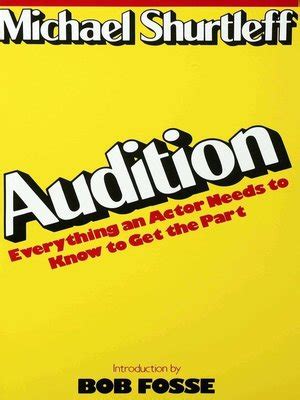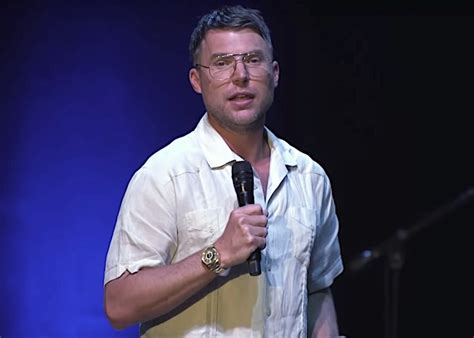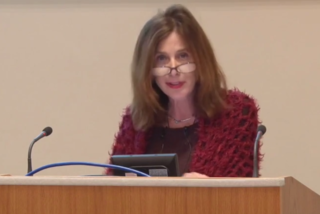Top 223 Inexplicable Quotes & Sayings - Page 4
Explore popular Inexplicable quotes.
Last updated on April 20, 2025.
You shouldn't have asked," I said. "Love doesn't ask many questions, because if we stop to think we become fearful. It's an inexplicable fear; it's difficult even to describe it. Maybe it's the fear of being scorned, of not being accepted, or of breaking the spell. It's ridiculous, but that's the way it is. That's why you don't ask-you act. As you've said many times, you have to take risks.
I have never seen an adequate description anywhere of the amazement, the uncomprehending horror of the bulk of the American people which preceded the firing of that gun at Sumter. Politicians or far-sighted leaders on both sides knew what was coming. And it is they who have written histories of the war. But to the easy-going millions, busied with their farms or shops, the onrushing disaster was as inexplicable as an earthquake. Their protest arose from sea to sea like the clamor of a gigantic hive of frightened bees.
The peace of God, which surpasses all understanding, will guard your hearts and minds through Christ Jesus . As we do our part rejoice in the Lord, pursue a gentle spirit, pray about everything, and cling to gratitude, God does his part. He bestows upon us the peace of God. Note, this is not a peace from God. Our Father gives us the very peace of God. He downloads the tranquility of the throne room into our world, resulting in an inexplicable calm. We should be worried, but we aren't. We should be upset, but we're comforted.
St. Andrews provided a gentle forgetfulness over the preceding painful years of my life. It remains a haunting and lovely time to me, a marrow experience. For one who during her undergraduate years was trying to escape an inexplicable weariness and despair, St. Andrews was an amulet against all manner of longing and loss, a year of gravely held but joyous remembrances.
As an artist, there's a sweet, jump-starting quality to [marijuana] for me. I've often felt telepathic and receptive to inexplicable messages my whole life. I can stave those off when I'm not high. When I'm high - well, they come in and there's less of a veil, so to speak. So if ever I need some clarity, or a quantum leap in my own consciousness, or a quantum leap in terms of writing something or getting an answer, it's a quick way for me to get it.
To suppose universal laws of nature capable of being apprehended by the mind and yet having no reason for their special forms, but standing inexplicable and irrational, is hardly a justifiable position. Uniformities are precisely the sort of facts that need to be accounted for. Law is par excellence the thing that wants a reason. Now the only possible way of accounting for the laws of nature, and for uniformity in general, is to suppose them results of evolution.
I am really, truly a hopeless romantic, myself, and I am also obsessed with past lives, knowing someone from a past life and knowing that right away, when you meet them. I really believe in inexplicable connections with people, and the way your subconscious enters your dreams. Those are themes in life that I'm really fascinated in.
We are made up of an entire parliament of pieces and parts and subsystems. Beyond a collection of local expert systems, we are collections of overlapping, ceaselessly reinvented mechanism, a group of competing factions. The conscious mind fabricates stories to explain the sometimes inexplicable dynamics of the subsystem inside brain. It can be disquieting to consider the extent to which all of our actions are driven by hardwired systems doing what they do best while we overlay stories about choices.
All men are, at times, influenced by inexplicable sentiments. Ideas haunt them in spite of all their efforts to discard them. Prepossessions are entertained, for which their reason is unable to discover any adequate cause. The strength of a belief, when it is destitute of any rational foundation, seems, of itself, to furnish a new ground for credulity. We first admit a powerful persuasion, and then, from reflecting on the insufficiency of the ground on which it is built, instead of being prompted to dismiss it, we become more forcibly attached to it.
We read novels because we need stories; we crave them; we can’t live without telling them and hearing them. Stories are how we make sense of our lives and of the world. When we’re distressed and go to therapy, our therapist’s job is to help us tell our story. Life doesn’t come with plots; it’s messy and chaotic; life is one damn, inexplicable thing after another. And we can’t have that. We insist on meaning. And so we tell stories so that our lives make sense.
Ever since the dawn of civilization, people have not been content to see events as unconnected and inexplicable. They have craved an understanding of the underlying order in the world. Today we still yearn to know why we are here and where we came from. Humanity's deepest desire for knowledge is justification enough for our continuing quest. And our goal is nothing less than a complete description of the universe we live in.
I’ve had that kind of experience myself: I’m looking at a map and I see someplace that makes me think, ‘I absolutely have to go to this place, no matter what’. And most of the time, for some reason, the place is far away and hard to get to. I feel this overwhelming desire to know what kind of scenery the place has, or what people are doing there. It’s like measles - you can’t show other people exactly where the passion comes from. It’s curiosity in the purest sense. An inexplicable inspiration.
It had ceased raining in the night and he walked out on the road and called for the dog. He called and called. Standing in that inexplicable darkness. Where there was no sound anywhere save only the wind. After a while he sat in the road. He took off his hat and placed it on the tarmac before him and he bowed his head and held his face in his hands and wept. He sat there for a long time and after a while the east did gray and after a while the right and godmade sun did rise, once again, for all and without distinction.
Before I met No I thought that violence meant shouting and hitting and war and blood. Now I know that there can also be violence in silence and that it’s sometimes invisible to the naked eye. There’s violence in the time that conceals wounds, the relentless succession of days, the impossibility of turning back the clock. Violence is what escapes us. It’s silent and hidden. Violence is what remains inexplicable, what stays forever opaque.
In all Gabriel’s life he could not remember his brother giving even the prettiest of Shadowhunter girls a second glance. Yet he looked at this scarred mundane servant as if she were the sun rising. It was inexplicable, but it was also undeniable. He could see the horror on his brother’s face as Sophie’s good opinion of him shattered before his eyes.
It suddenly made sense. Only twice in his life had he felt this inexplicable, almost mystical attraction to a woman. He’d thought it remarkable, to have found two, when in his heart he’d always believed there was only one perfect woman out there for him. His heart had been right. There was only one.
We made this inexplicable turn into Iraq, where we've lost lives, money, honour and the coalition on [George] Bush's watch. Surely he's not suggesting that if the Democrats win, things can get worse. I mean, all we can do now is to look at our field policy and change the course. We need more diplomatic outreach toward Iran, Syria and Middle Eastern allies, and less bluster and less threats, and fewer troops.
Once she made him watch Pride and Prejudice and for ages he would re-word Mr Bingley's apology to Jane Bennet, saying, 'I've been an inexplicable fool', for anything from losing his keys to burping out loud. Her reply to anything she wanted to do was Jane Bennet's response to Bingley's marriage proposal, 'A thousand times yes.
I am constantly trying to communicate something incommunicable, to explain something inexplicable, to tell about something I only feel in my bones and which can only be experienced in those bones. Basically it is nothing other than this fear we have so often talked about, but fear spread to everything, fear of the greatest as of the smallest, fear, paralyzing fear of pronouncing a word, although this fear may not only be fear but also a longing for something greater than all that is fearful.
There are moments when the elixir of life rises to such over?brimming splendor that the soul spills over. In the seraphic smile of the Madonnas the soul is seen to flood the psyche. The moon of the face becomes full; the equation is perfect. A minute, a half?minute, a second later, the miracle has passed. Something intangible , something inexplicable, was given out-and received.
The classicist, and the naturalist who has much in common with him, refuse to see in the highest works of art anything but the exercise of judgement, sensibility, and skill. The romanticist cannot be satisfied with such a normal standard; for him art is essentially irrational - an experience beyond normality, sometimes destructive of normality, and at the very least evocative of that state of wonder which is the state of mind induced by the immediately inexplicable.
Any rational human being is horrified and existentially baffled by the reality of the Holocaust meted out by the Nazis, by the majority of Germans throughout the 1930s and World War II; and by the countless countries, communities and individuals who collaborated with the vast constellation of Hitler's monsters in the gruesome murder of well over 60% of European Jewry. Codex Orféo reminds us that the root of that insanity is continuing in the form of contemporary Holocausts against other species, with equally systematic, atrocious and inexplicable madness.
The whole is a riddle, an enigma, an inexplicable mystery. Doubt, uncertainty, suspence of judgment appear the only result of ourmost accurate scrutiny, concerning this subject. But such is the frailty of human reason, and such the irresistible contagion of opinion, that even this deliberate doubt could scarcely be upheld; did we not enlarge our view, and opposing one species of superstition to another, set them a quarrelling; while we ourselves, during their fury and contention, happily make our escape into the calm, though obscure, regions of philosophy.
Here is one of the fundamental defects of American fiction--perhaps the one character that sets it off sharply from all other known kinds of contemporary fiction. It habitually exhibits, not a man of delicate organization in revolt against the inexplicable tragedy of existence, but a man of low sensibilities and elemental desires yielding himself gladly to his environment, and so achieving what, under a third-rate civilization, passes for success. To get on: this is the aim. To weigh and reflect, to doubt and rebel: this is the thing to be avoided.
I remember going to a Trump rally in South Carolina, and it was really important and it was really interesting to talk to the people who'd shown up there because they were not caricatures, and so often Trump voters, Trump supporters were being portrayed in the media, probably I'm guilty of it as well, as caricatures. Each of these people, and I talked to maybe a dozen of them, had a very particular reason why he or she was supporting Donald Trump , but these were not casual, inexplicable decisions.
The Bible is forbidding when you start to read it. The language is odd. The stories start and stop herkily-jerkily. The characters behave in inexplicable ways. It takes a little bit of time to get into the rhythm of the book. I found reading the first 15 chapters of Genesis very very difficult. Once I got past there, I loved reading, and found it very easy. When you get used to the Bible, it becomes thrilling to read (like any great book - I just had exactly the same experience with the Odyssey).
There is, in fact, no reason to believe that any given natural phenomenon, however marvelous it may seem today, will remain forever inexplicable. Soon or late the laws governing the production of life itself will be discovered in the laboratory, and man may set up business as a creator on his own account. The thing, indeed, is not only conceivable; it is even highly probable.
There is probably not one person, however great his virtue, who cannot be led by the complexities of life's circumstances to a familiarity with the vices he condemns the most vehemently--without his completely recognizing this vice which, disguised as certain events, touches him and wounds him: strange words, an inexplicable attitude, on a given night, of the person whom he otherwise has so many reasons to love.
We normally think of history as one catastrophe after another, war followed by war, outrage by outrage - almost as if history were nothing more than all the narratives of human pain, assembled in sequence. And surely this is, often enough, an adequate description. But history is also the narratives of grace, the recountings of those blessed and inexplicable moments when someone did something for someone else, saved a life, bestowed a gift, gave something beyond what was required by circumstance.
Are we going to continue to yield personal liberties and community autonomy to the steady inexplicable centralization all political power or restore the Republic to Constitutional direction, regain our personal liberties and reassume the individual state's primary responsibility and authority in the conduct of local affairs? Are we going to permit a continuing decline in public and private morality or re-establish high ethical standards as the means of regaining a diminishing faith in the integrity of our public and private institutions?
Man depends on God for all things: God depends on man for one. Without man's love God does not exist as God, only as creator, and love is the one thing no one, not even God himself, can command. It is a free gift or it is nothing. And it is most itself, most free, when it is offered in spite of suffering, of injustice, and of death . . . The justification of the injustice of the universe is not our blind acceptance of God's inexplicable will, nor our trust in God's love, his dark and incomprehensible love, for us, but our human love, notwithstanding anything, for him.
Maybe all wondrous books appear in our lives the way Milo’s tollbooth appears, an inexplicable gift, cast up by some curious chance that comes to feel, after we have finished and fallen in love with the book, like the workings of a secret purpose. Of all the enchantments of beloved books the most mysterious-the most phantasmal-is the way they always seem to come our way precisely when we need them.
Every life is inexplicable, I kept telling myself. No matter how many facts are told, no matter how many details are given, the essential thing resists telling. To say that so and so was born here and went there, that he did this and did that, that he married this woman and had these children, that he lived, that he died, that he left behind these books or this battle or that bridge – none of that tells us very much.
No matter how much we know about the other person, there is always something going on in that other heart and that other head that we don't know but can only ponder. And no matter how we explain ourselves to someone else, no matter how open we are, there is always still something inexplicable, something hidden and unknown in us, too.
It's perfectly clear to me that religion is a myth. It's something we have invented to explain the inexplicable. My religion and the spiritual side of my life come from a sense of connection to the humankind and nature on this planet and in the universe. I am in overwhelming awe of it all: It is so fantastic, so complex, so beyond comprehension. What does it all mean -- if it has any meaning at all? But how can it all exist if it doesn't have some kind of meaning? I think anyone who suggests that they have the answer is motivated by the need to invent answers, because we have no such answers.
The further on we go, the more meaning there is, but the less articulable. You live your life and the older you get- the more specifically you harvest- the more precious becomes every ounce and spasm. Your life and times don’t drain of meaning because they become more contradictory, ornamented by paradox, inexplicable. The less explicable, the more meaning. The less like a mathematics equation (a sum game); the more like music (significant secret).
To crush out fanaticism and revere the infinite, such is the law. Let us not confine ourselves to falling prostrate beneath the tree of creation and contemplating its vast ramifications full of stars. We have a duty to perform, to cultivate the human soul, to defend mystery against miracle, to adore the incomprehensible and to reject the absurd; to admit nothing that is inexplicable excepting what is necessary, to purify faith and obliterate superstition from the face of religion, to remove the vermin from the garden of God.
Mathematics alone make us feel the limits of our intelligence. For we can always suppose in the case of an experiment that it is inexplicable because we don't happen to have all the data. In mathematics we have all the data, brought together in the full light of demonstration, and yet we don't understand. We always come back to the contemplation of our human wretchedness. What force is in relation to our will, the impenetrable opacity of mathematics is in relation to our intelligence.
Because I'm moved in writing to be irrepressible. Writing to you seems like some holy cause, cause there's not enough female irrepressibility written down. I've fused my silence and repression with the entire female gender's silence and repression. I think the sheer fact of women talking, being, paradoxical, inexplicable, flip, self-destructive but above all else public is the most revolutionary thing in the world.
The believer's cross is no longer any and every kind of suffering, sickness, or tension, the bearing of which is demanded. The believer's cross must be, like his Lord's, the price of his social nonconformity. It is not, like sickness or catastrophe, an inexplicable, unpredictable suffering; it is the end of the path freely chosen after counting the cost. It is not, like Luther's or Thomas Muntzer's or Zinzendorf's or Kierkegaard's cross, an inward wrestling of the sensitive soul with self and sin; it is the social reality of representing in an unwilling world the Order to come.
That man can destroy life is just as miraculous a feat as that he can create it, for life is the miracle, the inexplicable. In the act of destruction, man sets himself above life; he transcends himself as a creature. Thus, the ultimate choice for a man, inasmuch as he is driven to transcend himself, is to create or to destroy, to love or to hate.








